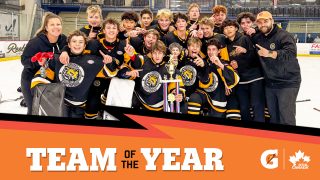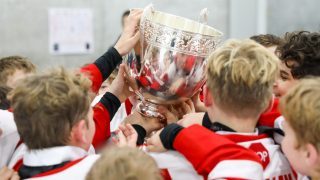Dr. Nick Reed is a clinician scientist in the Bloorview Research Institute and co-director of the Concussion Centre at Holland Bloorview Kids Rehabilitation Hospital. He is also an assistant professor within the Department of Occupational Science and Occupational Therapy at the University of Toronto.
The GTHL and Concussion Centre at Holland Bloorview Kids Rehabilitation Hospital announced in December 2015 a comprehensive five-year collaboration with a plan to enhance minor hockey player safety through the implementation of a first-of-its- kind integrated concussion strategy.
The strategy focuses specifically on the pediatric brain and is grounded by four key pillars: education and awareness, policy and protocol development, concussion services including baseline testing, and training.
Know the signs
Playing sports can positively affect the physical, mental and social development of youth. That’s why it’s so important to help kids get back to doing what they need, want and love to do after sustaining a concussion.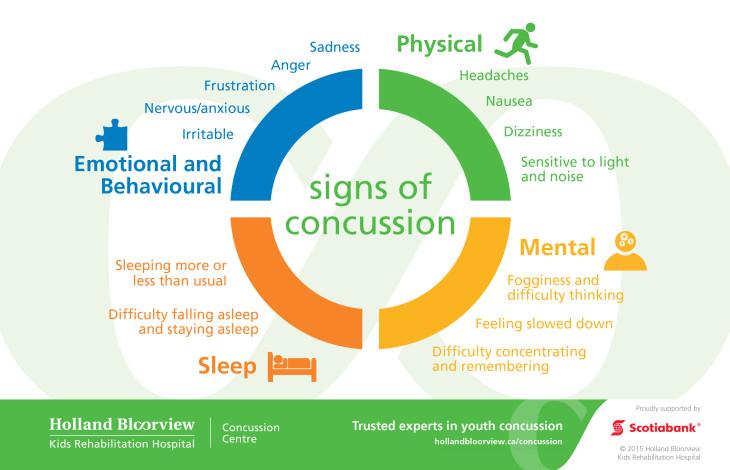
A concussion is a brain injury that can affect how your brain works. When a hit takes place, the brain moves back and forth inside the skull. If it moves hard enough, the brain can become injured. This injury can make your brain and body work and feel different.
Everyone has a different concussion experience. Concussions heal quickly for some people, while others have a longer road to recovery. It’s hard to predict how long a concussion will last, but knowing what to look for is a key first step.
The value of baseline testing
It is critical to know when children can safely return to the activities they love and a baseline concussion testing program can help make that decision. It is important to recognize that even if a child’s symptoms appear to have resolved following a concussion, the child may not yet be ready for active play.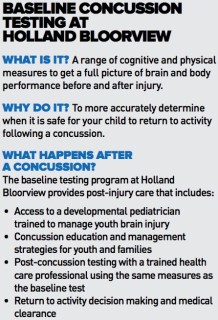
Guidelines for pediatric concussion released by the Ontario Neurotrauma Foundation suggest baseline neuro-cognitive testing for children and adolescents who play high risk sports.
Comparing post-injury test results to baseline data provides valuable information to support health care providers and families in making informed decisions about return to activity.
The value of a baseline test lies in post-injury care. It is critical that a qualified health care professional trained in using these tests with kids is part of that care.
Role players
Concussion care is a team effort. The goal of the collaboration between the GTHL and the Concussion Centre at Holland Bloorview Kids Rehabilitation Hospital is to bring us together to best meet the needs of kids and families.
Together we can make a difference.
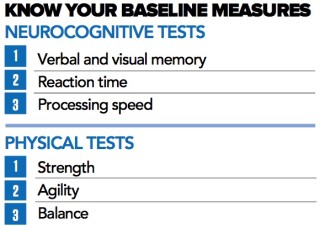
Holland Bloorview helps:
- Provide access to concussion services provided by health care professionals trained in pediatric brain injury
- Educate the GTHL community on what a concussion is and what to do if you have one
- Conduct world leading concussion research specific to kids in order to design and deliver up-to-date and evidence-based concussion care and education
The GTHL community can:
- Make concussion awareness a priority and create a culture of safe and fair play
- Learn the signs and symptoms of concussion and what to do when a player has one
- Inform the creation of concussion care and education that best fits the needs of players, parents, coaches and team staff
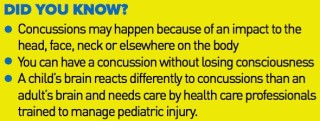
Dr. Nick Reed Says . . .
The off-season is a great time to learn how to identify and manage a concussion. Download the Concussion & You handbook or attend a free session at Holland Bloorview.
Visit hollandbloorview.ca/concussion for more information.




